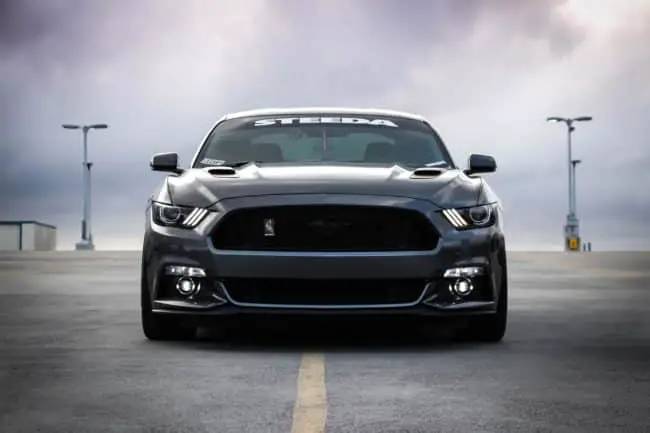Not having a car in the United States is not plausible for a vast majority of the American citizens. But did you know that you can be car poor? Let’s explore why people can become so car poor.
Why Do Americans Love to be Car Poor?
For most Americans, it’s inevitable not to own a car due to the nature of their work and commuting needs. The change in lifestyle and expensive living has made many millennials to hold cars that they can’t even afford leading them to become car poor citizens.
In our vast and beautiful country, land of prosperity and a dream destination for many who want to live the American dream, owning a car has become more than a necessity.
The highest percentage of American citizens are obsessed with cars.
Statistics show that 8% of people earning less than $100,000 own luxury model or posh car… What? While that might not seem like a high percentage. That means that someone owns a vehicle that is more than their annual salary alone.
You’d never make this mistake if you had a daily snapshot of your cash flow with Personal Capital. A free app to help you monitor your investments, cash flow and debt completely seamlessly.
We already have a problem with retirement savings and this doesn’t even account for that. The numbers get worse. I’ll explain below.
Although owning a car makes a lot of sense mainly due to the nature of the cities set up, the notion is still overrated. The desire of most people to live a suburban life has practically made almost everyone to want to own a car.
While owning a vehicle is not a bad thing in the first place, the aspect of owning or having to pay for a car that negatively affects your finances, is a wrong choice.
Most of these cars are more of a liability than an investment, and although not many people realize, it eventually leads to financial strain. Fact is cars require a large amount as the initial capital, they never appreciate, but instead, they depreciate, and they also incur gas and insurance expenses.
At the end of the day, I’d rather invest in appreciating assets and you should too. Get started investing by following my guide called Dividend Investing Your Way to Financial Freedom.
You can download it free below.
In this article, I will delve into the main reasons why Americans love to be car poor.
So, What is Being Car Poor?
Cars suck. They are solely a medium to get you from one place to another.
Technically, being car poor is being in a position where you own an expensive car but still struggle to make a living.
If you are paying a car loan that strains your budget and makes it hard for you to meet your necessities, then you can consider yourself as being car poor.
Here are some reasons why Americans love to be car poor.
1. The Necessity of Owning a Car
The major contributor to this massive emergence of poor car people in the United States is the necessity to own a car. Owning a well-functioning vehicle in the US is almost as fundamental as having a meal on your table.
Reason for this is that many people work far from where they reside and in most cases areas that are not well served by transit services. For this reason, it becomes necessary for these people to look for a commuting option no matter the cost, which in most cases is having a personal car.
Most people would lose their jobs if they didn’t own a car since they would lack the means to reach their workplaces.
When it comes to necessity, the cost of maintaining or owning the vehicle doesn’t have an impact on the decision of the individual. People opt to buy the car and strain repaying for it, to keep their jobs.
Although many may conclude that there is a secure connection between owning a car and the possibility of having a job, I wonder how true this is. The question I think we should all ask ourselves is whether the benefits of owning one, really outweigh the expenses or not.
If yes, then it would be very prudent to own that vehicle. In my opinion, transit services are comparatively cheap than owning your vehicle.
See Related: How to Save Money on a Night Out
2. Easy Access to Car Loans
Availability of car financing is another significant factor that is contributing to the increase in the number of car owners in the country. More and more low-income earners can now access car loans, and therefore the same number of people are turning out to become car poor citizens.
Easy access to loans for car purchases as well as the increase in loan amounts offered in the past few years according to the findings of the Federal Reserve Board of New York leads to more car poor residents.
There is also more placement of more used cars in the market which in turn makes them more affordable to many who couldn’t have afforded it previously. Car dealers are offering low prices for the old cars which have been stuck in their yards to make them move.
They are also offering car loans with extended repayment periods thus increasing the number of loans provided.
According to the recent Automotive Finance Market report by Experian Automotive, the average standard automotive loan period has reached a high of 66 months. The report also indicates that the amount of loans covering 73-84 months has gone up to 25%. That’s right. The car loans have become so accessible and flexible that almost anyone now can own a car.
All these “favorable” lending terms have played a significant role in the increase in the number of people who own cars and who still strain to maintain them.
3. Migration
Migration is yet another major factor that is turning people to becoming poor car citizens. Low-income families may migrate from transit-oriented cities to suburbs which doesn’t have an excellent network for transit services but has cheaper housing.
Owing to this, it is very necessary for a family to own a car despite the cost, to cater to their commuting needs.
According to Blumenberg, even if you are in the low-income earning bracket, relying on transit services in suburban areas can be challenging and thus the need to own a vehicle.
Given this, the zero-car household cannot work in these areas, and people have to pay for substantial and long-term car loans for survival.
See Related: What is the Difference Between Rich and Wealthy?
How Cars Can Keep You Poor
The choices we make may negatively or positively impact our future. If you make a sound investment decision, you reap significant benefits in the future, and if you make a bad one, the opposite also applies.
Do you think your car is more of a liability that it is an investment?
Here are a few ways on how a car can make you poor.
It’s a Depreciating Asset
A vehicle will never appreciate in value but rather depreciate over years of usage. Any amount of depreciation in that vehicle means a loss for you. Unlike other investments like real estates which appreciate in time, a car brings more and more expenses to your bills.
Expensive car cheap house is the life many Americans are living.
Decreases Your Savings
A big question that you ought to pose to yourself is, “how much do you have in terms of savings?” The more you pay for your car, the more you dwindle your savings, and you slow down your journey towards financial freedom. You need to manage your money well and possess a sound personal financial plan.
For example, if you have to pay an average of $530 monthly payment for your car, it means that you are decreasing your monthly saving by the same amount. In a year, you will have gone deeper by $6360, and if the repayment term is 66 months, you will have $34,980 less on your savings.
By the time you finish repaying the first loan, the car will have depreciated, and you need a new one, and therefore the cycle will continue. If you make the payments for 47 years (let’s say from 20 to 67 years) you will have lost $298,920.
On the other hand, if you would have invested this money and earned some interest, you would be looking at an attractive retirement package and be in a better financial position.
May Incur Car Leasing Expenses
If instead of outrightly purchasing a car you decide to lease, think again if you convince yourself that it’s a better option. Many people tend to believe that leasing is much cheaper and that the benefit of tax relief is something to be proud of.
In the real sense, you are still as bad as that person making a monthly car loan payment.
Since some people will pay even up to $5,000 plus, for those high-end cars, even after getting that $ 1,000 tax relief, you will still have paid around $4,000 per year. Worse yet, you will have nothing to show for that money since the car is still not yours.
Requires Insurance
The monthly insurance premium paid for a car in the United States depends on a lot on a lot of factors like age, gender, location, job, and credit among others.
Despite all of this, the average car insurance cost in the US according to research done by ValuePenguin was $941.65 per year, although this varies from state to state. Florida and Michigan have the highest rates of between $1,596 and $1,824 annually. This cost is an addition to your loan payments.
Requires Gasoline and Ongoing Maintenance
After you’ve paid for the monthly installments and the insurance, the car will still require gasoline and maintenance costs to operate. An average American drives 12,000 miles every year and may use an average of 25 mpg (miles per gallon) depending on the driving habits.
If for example, the cost per gallon of gasoline is $3, that person will spend $1,440 annually or $120 in a month. For maintenance, a regular one will cost around $140 per for the average cars, and also you may incur a registration cost of $100 annually.
If we add all these costs, assuming that the person took a car loan of $530 per month, the individual will pay the following:
- Loan repayment = $6,360 per year
- Insurance = $941.65 per year
- Gasoline = $1,440 per year
- Maintenance & Registration = $240 per year
These costs combined totals to $8,981.65 per year or $748.47 per month. Your monthly bills will increase enormously, and you will have to cater to it in addition to others like water, electricity, gas, grocery, rent, and many others. A car can limit your ability to repay student loans or invest.
It shows exactly how cars can keep you poor for life.
See Related: How to Finance a New Roof
How to Avoid Being Car Poor with All these Forces Around Us.
At this stage, I can confidently say that cars keep you poor in so many ways and its high time we learn how to deal with this menace. Although to many people, not having a vehicle is not an option, it’s also unwise to deceive yourself that you can only use the newest or the most luxurious car around.
It would be detrimental to think that you have to have one car with a model that has the most sophisticated features.
If you are tired of paying that monthly car note and want to know how to avoid it, then here is how.
Purchase a Used Instead of a New Car
As discussed earlier, a vehicle is a depreciating asset. Therefore, if you can get a used one even for one or two years, you can save a considerable amount. Buying a used car is significantly cheaper than a new one. If you want to know how much can you save on a used car, then this example will help.
According to credit reporting agency Experian, while the average repayment for a new car was $530 in 2018, a used car went for $381 per month.
If you calculate per year, it will be $6,360 less $4,572 which will be $1,813. You will save $1,813 per year in repayment which is a significant amount.
Consider the Size and Efficiency
The size of the car will mostly determine the cost of the vehicle. Therefore, it implies that you should consider owning a small car instead of the large models like SUVs. Also, try to compare the efficiency of different models to avoid extra costs.
Research on Depreciation and Maintenance Costs
Cars are not equally developed and require different amounts of the maintenance cost, and frequency, and thus you should also consider that. Carry out proper research to find out the type of a car that you need to buy and make sure that you get the best value for your money.
Remember that cars depreciate in time and therefore don’t overinvest on vehicles so that you don’t become car poor.
Make Wise Financial Decisions
When it comes to financing, you should look for a plan that won’t leave you financially strapped and stuck repaying monthly repayments for eternity. The shorter the period, the better for you since you will pay less interest although the installments will be strenuous.
Since you can’t take a loan with a 7% interest to invest in a stock that has a drop of 15% annually, then don’t take extended periods as it’s just the same. A car might not be worth sacrificing your entire financial independence ambitions.
Conclusion on Being Car Poor (And How to Avoid)
Being car poor is a real mess and a hope this article has shed light on the various ways that cars make you poor and how you can avoid that. I hope that this piece is useful to you and you’ve gathered valuable insights that will help you going forward about your choices regarding car ownership. Follow these wise tips on increasing your net worth, not decreasing it.
Do you think that Americans love to be car poor? Let us know in the comments below.
Other Related Resources
- Fundrise Review: Seamless Commercial Real Estate Investing
- The Ultimate Guide To Fractional Shares Investing
- 8 Dividend Stock Screeners to Build a Passive Income Portfolio
Subscribe to the Millionaire Mob early retirement blog newsletter to find the best travel hacking tips, dividend growth investing, passive income ideas and more. Achieve a financially free lifestyle you’ve always wanted.







1 Comment
The automobile has definitely ascended just means for transportation and just another way for people to flaunt their wealth (perceived or actual).
I admit I am a car guy and enjoy how some high end cars look, feel, and drive. I have purchased 2 new cars as an adult (a 2004 C320 Mercedes when I was about to become an attending physician (had to finance it) and a 2015 Tesla 90D (paid for in cash at least). The Mercedes I offset the cost of it by driving it for over 11 years as my main driver and putting over 230k miles on it.
The Tesla already has 85k miles on it and I plan on holding this long term as well.